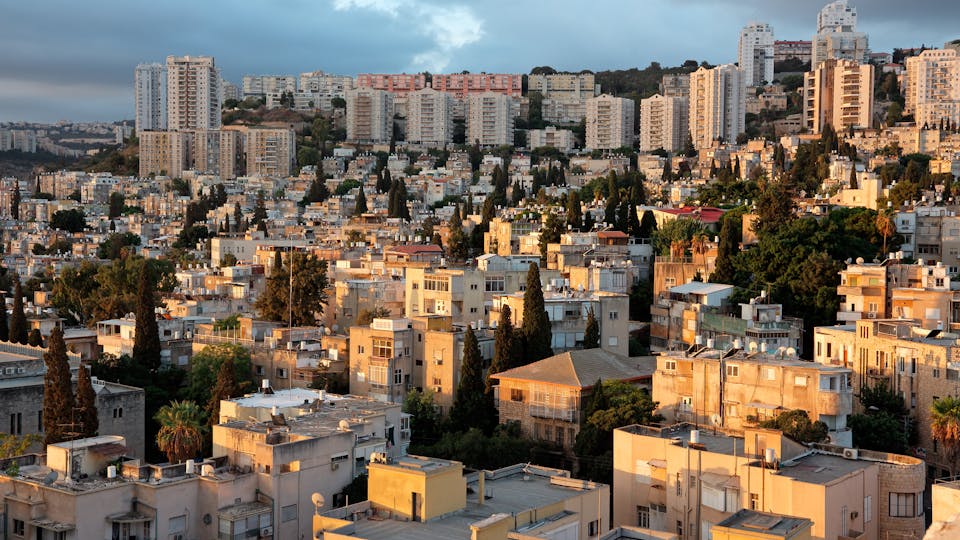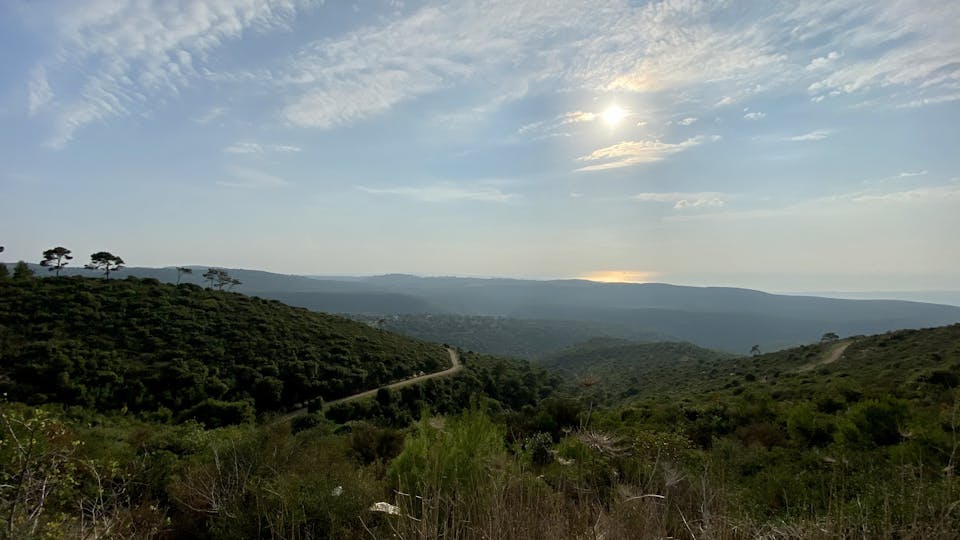Exploring the Israeli Coastal Plain: A Must-Visit on Christian Tours

The Israeli Coastal Plain holds a profound place in Biblical history, serving as the backdrop for numerous pivotal events that shaped the narrative of the Christian faith. This region was home to ancient cities mentioned in the Bible, such as Caesarea Maritima, where the Apostle Paul was imprisoned before his journey to Rome.
Additionally, Jaffa (Joppa), one of the world’s oldest ports, is known for its connection to the prophet Jonah and his attempt to flee from God’s command.
Mount Carmel, another prominent site on the Coastal Plain, is famously associated with the prophet Elijah’s confrontation with the prophets of Baal.
These sites, among others, offer a tangible connection to the events and figures that are foundational to Christian beliefs, making the Israeli Coastal Plain a region of unparalleled spiritual significance.
Historical and Biblical Significance
The Israeli Coastal Plain along the Mediterranean Sea is steeped in Biblical history, with numerous events and stories significant to Christian theology and tradition. This region served as a stage for some of the most important events in the Old and New Testaments, making it a key area of interest for Christian pilgrims and historians alike.
Caesarea Maritima:

This ancient Mediterranean port city, built by Herod the Great, is a site of major New Testament significance. It was here that the Apostle Peter baptized Cornelius, the Roman centurion, marking the first recorded instance of a Gentile converting to Christianity (Acts 10).
Additionally, the Apostle Paul was imprisoned in Caesarea for two years before being sent to Rome, as detailed in the Book of Acts (Acts 23:23-35). The city also hosted the early Christian Council of Jerusalem, which debated the inclusion of Gentiles in the Christian community.
Jaffa (Joppa):

Jaffa is one of the oldest ports in the world, with a history that predates even the Bible. It is famously mentioned in the story of Jonah, who attempted to flee from God’s command by boarding a ship at Jaffa, only to be swallowed by a great fish (Jonah 1).
In the New Testament, Jaffa is the setting for Peter’s vision of a sheet descending from heaven, filled with all kinds of animals, symbolizing the inclusion of Gentiles in the Christian faith (Acts 10:9-16). This vision led to a significant shift in early Christian teaching, emphasizing the universality of the Gospel.
Mount Carmel:

Mount Carmel is best known as the site of the dramatic confrontation between the prophet Elijah and the prophets of Baal. This event, recorded in 1 Kings 18, is a powerful testament to the sovereignty of the God of Israel.
Elijah’s victory on Mount Carmel reinforced the central message of monotheism in the Hebrew Scriptures, a belief that would later be integral to Christian theology. Today, the Carmelite Monastery on Mount Carmel serves as a place of pilgrimage and prayer, commemorating Elijah’s zealous defense of his faith.
Festivals Related to Christian History
The Israeli Coastal Plain hosts several special events and festivals that are of particular interest to Christian pilgrims:
Feast of St. Peter (Jaffa):
Celebrated annually in June, this feast honors St. Peter and his significant role in the early Church. The festivities in Jaffa include a special mass at St. Peter’s Church, processions, and community gatherings. Pilgrims visiting Jaffa during this time can participate in the celebrations and deepen their connection to the Apostle’s legacy.
Carmelite Feast Day (Mount Carmel):
The Carmelite Order, founded on Mount Carmel, celebrates the Feast of Our Lady of Mount Carmel on July 16th each year. This event includes special masses, processions, and spiritual retreats at the Carmelite Monastery on Mount Carmel. Pilgrims can join the local community in honoring the Virgin Mary and reflecting on the spiritual heritage of the Carmelite tradition.
Pauline Year Pilgrimages (Caesarea Maritima):
During designated Pauline Years, which are special years dedicated to the Apostle Paul, Caesarea Maritima becomes a focal point for pilgrims seeking to follow in Paul’s footsteps. Special tours, lectures, and liturgical celebrations are organized to commemorate Paul’s life and missionary work. This provides a unique opportunity for pilgrims to engage with the Apostle’s legacy in the very place where he was imprisoned.
Frequently Asked Questions
1. What are the must-visit Biblical sites on the Israeli Coastal Plain for Christian pilgrims?
The Israeli Coastal Plain is home to several key Biblical sites that are essential for Christian pilgrims. The most notable ones include:
- Caesarea Maritima: Where the Apostle Paul was imprisoned and where Peter baptized Cornelius.
- Jaffa (Joppa): Known for Peter’s vision of the sheet from heaven and the story of Jonah.
- Mount Carmel: Famous for Elijah’s confrontation with the prophets of Baal.
2. What types of Christian tours are available on the Israeli Coastal Plain?
- Group Tours: These are guided tours that offer a communal experience, often including transportation, accommodations, and meals.
3. When is the best time to visit the Israeli Coastal Plain on a Christian pilgrimage?
The best time to visit the Israeli Coastal Plain is during the spring (March to May) and autumn (September to November) when the weather is mild and pleasant. These seasons are ideal for exploring outdoor Biblical sites without the extreme heat of summer or the potential rains of winter.
Explore the Israeli Coastal Plain with Us
If you are inspired to explore the rich spiritual heritage of the Israeli Coastal Plain, now is the perfect time to embark on a Christian pilgrimage. The Coastal Plain promises an unforgettable experience that will strengthen your faith and bring the stories of the Bible to life.
Don’t miss the chance to walk through the pages of history and deepen your connection to your faith. Begin your journey today by exploring our curated Christian tours of the Israeli Coastal Plain.